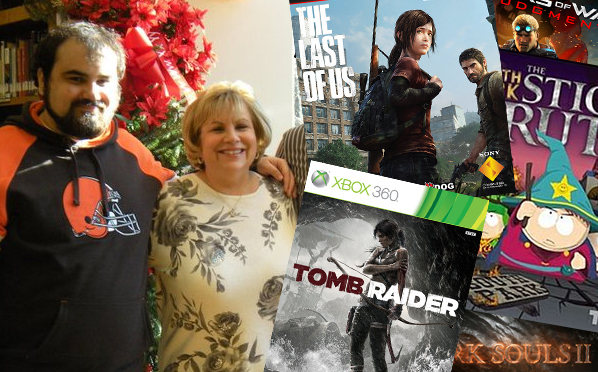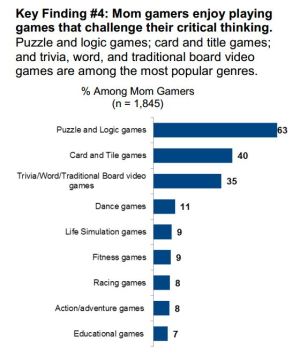Mom can’t help you with your math homework or get you some chocolate milk right now because she’s too busy playing video games.
Nearly three out of every four mothers (74 percent) in the U.S. plays video games, according to the Entertainment Software Association. Of those that game, 75 percent do so on a weekly basis. Naturally, smartphones and tablets are the preferred platforms, with more than 65 percent playing on their iPads or Android phones.
The ESA, which is one of the primary lobbying groups for the gaming industry, claims that mothers often see games as a way to connect with their family. More than half of the gaming moms (54 percent) responded that they believe the hobby is useful for engaging the entire family.
“Video games create new bonding experiences for families,” ESA chief executive Michael D. Gallagher said in a statement. “From puzzle games to role-playing games, and across all game platforms, moms enjoy the full range of innovative entertainment our industry offers. As more moms play games, they also recognize the benefits of game play, including how video games help bring families together and exercise our minds in a fun and engaging way.”
So, what kinds of games is mom playing? Well, puzzle, card, and word games are the big winners, with 63 percent playing puzzlers, 40 percent playing card titles, and 35 percent playing trivia/word/board games.
The ESA pointed out some more interesting findings about moms from the report:
- 71 percent of mom gamers closely monitor what kind of games their children are playing.
- 56 percent say that playing games is a family activity.
- 32 percent believe that games have a positive effect on their cognitive abilities.
- 30 percent claim games help them connect with their kids ages 5 to 12.
Katie Salen, the executive director of the Institute of Play, a nonprofit that develops learning and engagement methods, says that games are a platform for “intergenerational play and learning.”
“Kids often take the lead in showing their moms what they know how to do in the game — they are the experts,” said Salen. “This gives both moms and their children a chance to interact and learn together, which we know from a developmental perspective has great benefits.”
The ESA contracted industry analytics firm The NPD Group to conduct the research. NPD surveyed around 2,500 adult women with children under the age of 18. Read the full report on The ESA’s website.
VentureBeat's mission is to be a digital town square for technical decision-makers to gain knowledge about transformative enterprise technology and transact. Learn More


![Reblog this post [with Zemanta]](http://img.zemanta.com/reblog_e.png?x-id=f27910f6-69f9-449f-8b67-af71bf5a18de)
